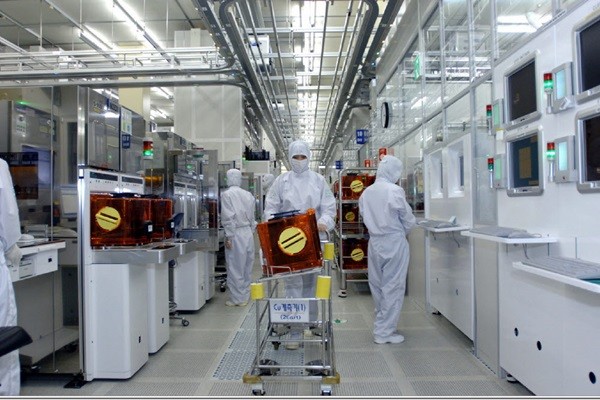It was confirmed that both Samsung Electronics and SK Hynix made requests for an approval from the U.S. Department of Commerce regarding exportation of semiconductors to Huawei. It is heard that many other multinational corporations besides Samsung Electronics and SK Hynix that had supplied semiconductors to Huawei also made requests to the U.S. Department of Commerce as well.
However, a chance that these requests will be approved is small based on the current atmosphere within the Trump administration and the trend of sanctions imposed on Huawei. As a result, semiconductor manufacturers are also looking for other buyers in order to minimize any negative effect that they may face from not being able to supply their products to Huawei.
According to the semiconductor industry and the South Korean Government on Wednesday, Samsung Electronics and SK Hynix recently made requests for an approval from the U.S. Department of Commerce.
They made these requests in order to prepare for a sanction that the U.S. Department of Commerce will impose on Huawei starting from September 15 which will prevent companies from supplying their semiconductors that are manufactured using American software programs or equipment to Huawei without a prior approval.
“Many multinational semiconductor manufacturers including Samsung Electronics and SK Hynix made requests for an approval from the U.S. Department of Commerce.” said one high-ranking official from the government. “Regardless of whether these requests get approved or not, they took necessary measures before the U.S. Government imposes its sanction on September 15.”

Samsung Electronics and SK Hynix have yet to receive any decision on their requests. While they will be able to continue to supply semiconductors to Huawei even after September 15 if they receive an approval, they will have to immediately stop supplying their products once their requests get rejected.
This upcoming sanction applies for every semiconductor manufacturer in the world as American technologies are involved in some ways during the semiconductor manufacturing process.
This sanction is going to be especially hard on semiconductor manufacturers. In addition to Samsung Electronics and SK Hynix, Qualcomm and MediaTek that manufacturer application processors and modems for smartphones also made requests to the U.S. Department of Commerce.
As of the end of last year, Huawei was Samsung Electronics’ top five semiconductor buyers and it was responsible for about 10% of SK Hynix’s revenue. They will have no choice but to change their customers and supply networks if they are not able to supply their products to Huawei anymore. If Huawei, which is the world’s second biggest smartphone manufacturer, comes to a point where it cannot manufacture its smartphones anymore, semiconductor manufacturers must find other buyers that will replace their current supplies for Huawei.
According to the industry, Samsung Electronics and SK Hynix are preparing countermeasures. The most likely way that they will act against the sanction is that they will look to increase supplies for Samsung Electronics and Apple and OPPO and VIVO that are expected to benefit the most from the sanction.
In case of Samsung Electronics, there is a chance that it will be able to offset negative effects of the sanction by having its smartphone and 5G equipment businesses flourish even if suffers from reduced supplies of semiconductors such as DRAM and NAND flash memory. Actually, Samsung Electronics is looking to increase next year’s smartphone shipments to 300 million units.
“Because memory is a commodity, memories that are supplied to Huawei can also be used by other companies.” said a representative for the industry. “Although it does not seem like the U.S. Department of Commerce will approve requests made by semiconductor manufacturers, the sanction will not probably have too much impact on our industry based on overall performance of the memory industry and from an industrial point of view.”
Staff Reporter Yun, Geonil | benyun@etnews.com